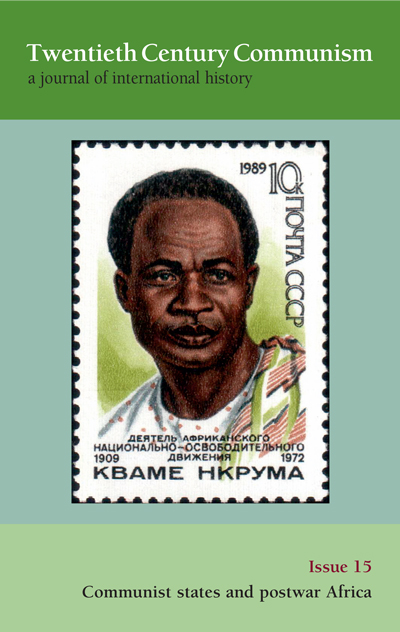
Hungarian foreign policy towards Africa during communism and in the post-Soviet era
Twentieth Century Communism - Print ISSN 1758-6437 - Online ISSN 2978-1329
Volume 2018 Number 15
Hungarian foreign policy towards Africa during communism and in the post-Soviet era
Istvan Tarrosy
Abstract
During the communist era (1949-1989) Hungary experienced a number of different kinds of one-party rule, and the period therefore needs to be analysed in three stages. The first period can be characterised as totalitarian dictatorship, classical Stalinism – which
began developing from the late 1940s and lasted until 1963. During these decades, the Communist Party, which was re-organised in November 1944, ‘proclaimed itself the exclusive repository of all social interests’. Under Stalin’s favoured local leader, Mátyás Rákosi,
the Hungarian people were put under the strict control of the party, and every walk of life was scrutinised, which soon created a society in which people withdrew into their shells. The second stage was triggered by the 1956 uprising, which gave the signal that people
rejected Rákosi’s rule and Soviet-style totalitarianism; although the uprising failed, it contributed to a fundamental change in the long run. The second phase, in particular in the 1970s, was determined by less political control and a growing distance from the ideological
legitimacy of the Rákosi regime. János Kádár, who became prime minister after the uprising was suppressed, wanted to ‘consolidate’ the country after 1956, and increasingly allowed the private sector space in society, both in economic and cultural terms.
SORRY - you are not registered as being permitted online access to the full text of this article
You have the following options:
- If you are viewing this via an institution or academic library you can ask that your institution takes out a Subscription to this journal.
- If you already have a Personal Subscription please login below
Forgotten your username / password? Click here to locate
- Purchase an annual Personal Subscription
PRINT + DIGITAL personal subscription (£30 / year)
DIGITAL personal subscription (£25 / year)
A Personal Subscription provides immediate access not only to the single article you are seeking, but also to all past and future articles in this journal up to the expiry of your annual (calendar year) subscription. - Purchase immediate access to this single article (UK£7.00) - Buy article Coming Soon
To cite this article
Istvan Tarrosy (2018) Hungarian foreign policy towards Africa during communism and in the post-Soviet era, Twentieth Century Communism, 2018(15)
